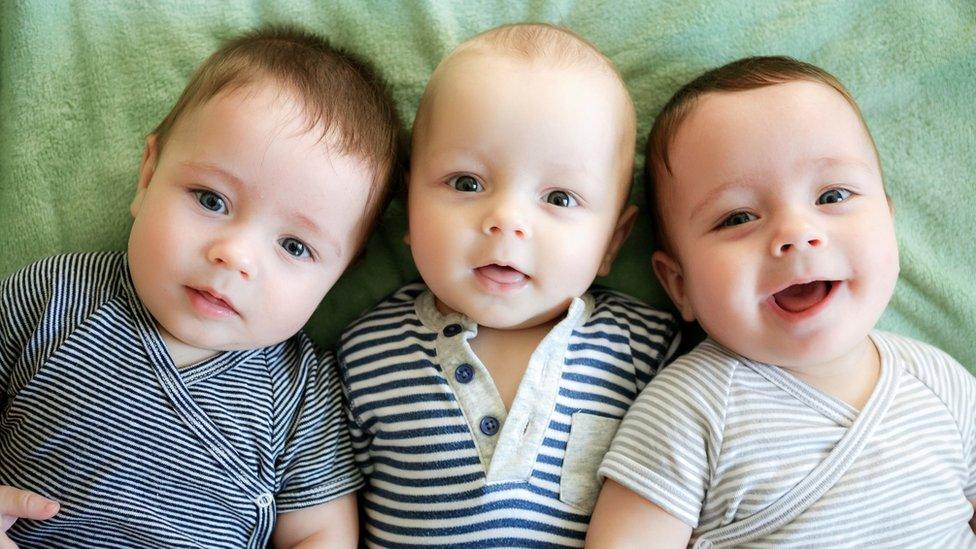Coronavirus: Surrogate parents 'should be at birth' in lockdown
- Published
A surrogate mother and parent share their birth experience while faced with Covid-19 restrictions
Parents having a surrogate baby should be allowed to be present at the birth and care for the newborn, despite coronavirus, a help group has said.
Surrogacy UK said some surrogates have been told both intended parents (IPs) cannot be at the birth and surrogates must look after the baby in hospital.
It said coronavirus meant some IPs missing the birth because only one person can be a birth partner.
One surrogate and a parent told BBC Wales it made the experience difficult.
Every year, hundreds of women act as surrogates for people who cannot conceive naturally.
Last year, 430 parental orders went through the courts - where parental responsibility for a child who has been carried by a surrogate is handed over to the IPs.
Before the coronavirus outbreak, both IPs were allowed at a surrogate birth, along with a birth partner for the surrogate.
"What we would like is recognition from the hospitals that the parents are not a birth partner," said Surrogacy UK trustee Rena Miras-Pye, who was herself a surrogate earlier this month.
"A surrogate would like a birth partner to support them, the parents are the parents so, in an ideal situation, the parents would be able to be present for the birth of their child.
"Ideally they would be present, and if not present at the birth, then after the birth so they can care for their child and the surrogate does not have to care for that child.
"What you want is the parents to have that special time with their newborn child to bond with them."
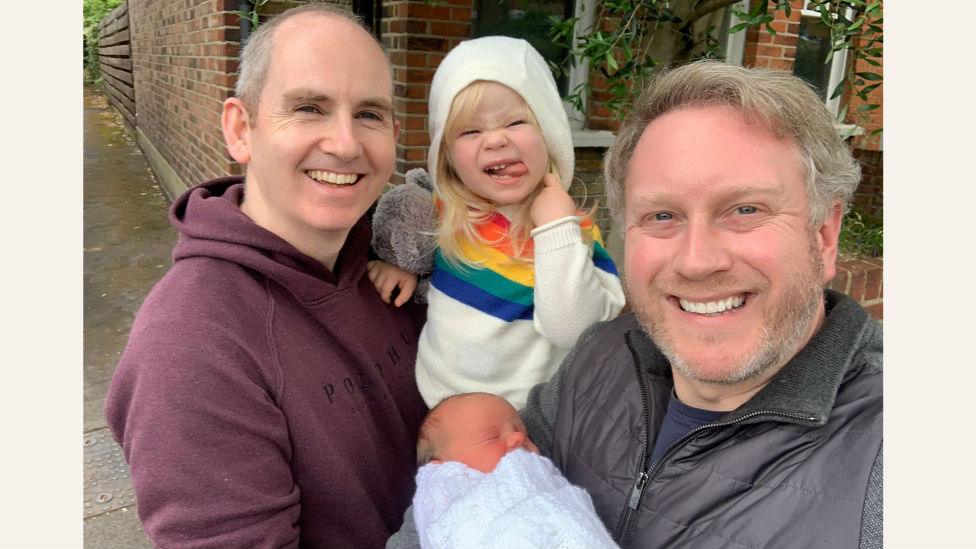
Arriving back at the family home - newborn Tadhg and David with Donncha and Saoirse
Katie Bezant, 38, gave birth to a surrogate baby, Tadhg, two weeks ago at the Royal Gwent Hospital in Newport for David and Donncha Pexton-Hayes from west London.
The couple said they were initially told she would have to give birth alone and look after the baby until she was sent home, although the health board later changed its policy.
David Pexton-Hayes said: "To then go through that process of surrogacy - waiting to be offered help, trying for a baby, and when for whatever reason, it doesn't work. Again, more pain.
"So when the baby is born and you've gone through all of that, to be told there's a possibility that you may not be able to start caring for your child - it's like someone is ripping out your stomach.
"It's incredibly painful. And also for a surrogate to be told that she might have to look after a child, I think is just mentally damaging."
Although Mr Pexton-Hayes was allowed to look after Tadhg when he was born, his husband could not be at the birth.

THE R NUMBER: What it means and why it matters
LOOK-UP TOOL: How many cases in your area?
EXERCISE: What are the guidelines on getting out?
RECOVERY: How long does it take to get better?
SCHOOLS: When will children be returning?

Miss Bezant said: "The hospital were really good about doing what they could, but because of coronavirus I was only allowed one person at the birth.
"It meant I never got to see Donncha meet his son because he was discharged separately from me as well, and Donncha didn't get to see him be born, so that's been the saddest part of that, it's been really hard to come to terms with."
In the UK, surrogacy relies on people wanting to do it as it is against the law to pay someone to carry a child.
It was the second time Miss Bezant, who has a teenage son herself, was a surrogate to the couple.
Cardiff and Vale health board said it would allow the IPs to remain in hospital with the baby after the birth.
Elsewhere in Wales, the policy is that the birth mother should look after the newborn because of concerns over infection during the pandemic.
Fiona Giraud, director of midwifery and women's services at Betsi Cadwaladr University Health Board, said: "We would encourage surrogate mums to contact their midwife directly to discuss their birthing arrangements.
"Wherever possible, we will seek to reach a compromise which takes into account their unique circumstances and our need to maintain high standards of infection prevention and control for all women and their babies during the pandemic."
Other health boards have been asked to comment.
- Published11 June 2020
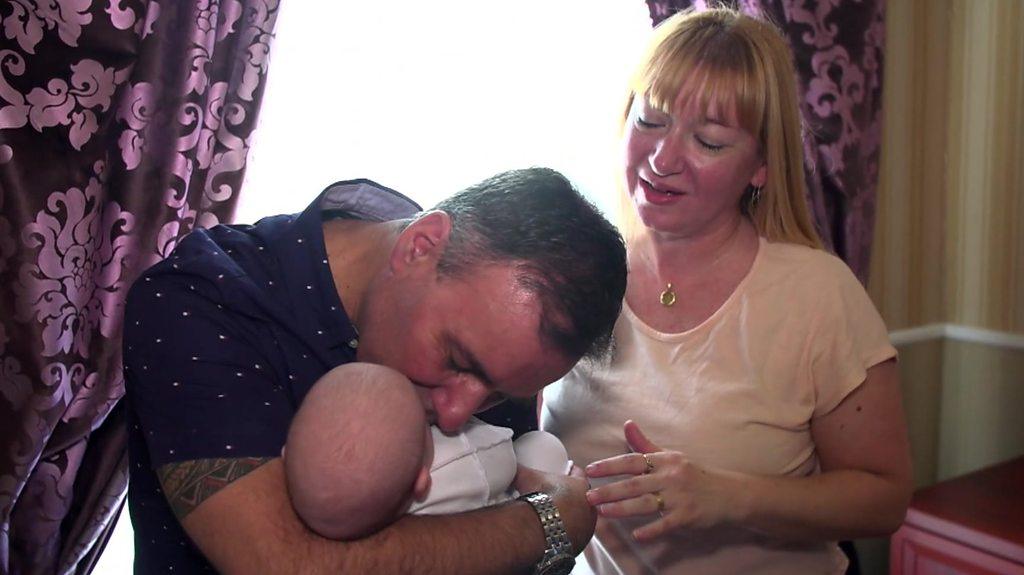
- Published19 May 2020
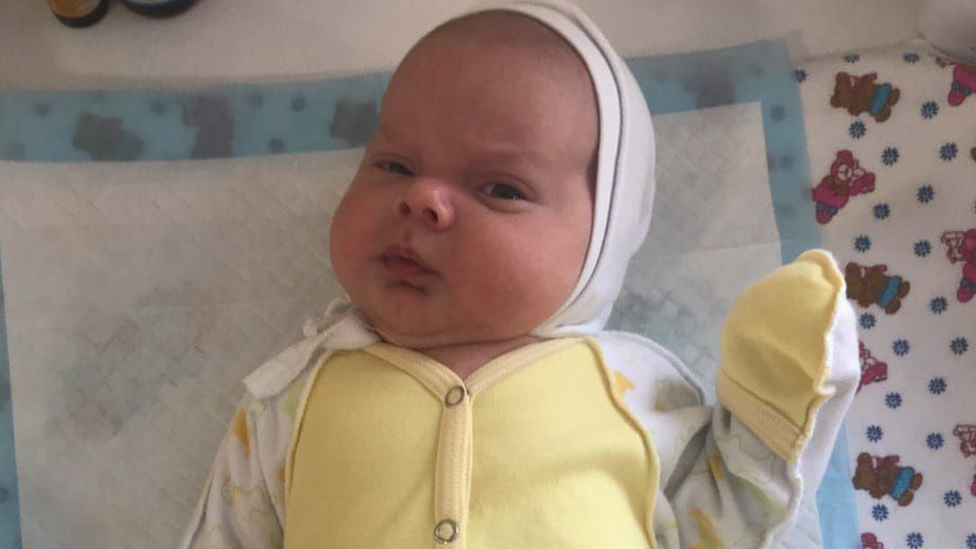
- Published25 May 2020
- Published15 May 2020
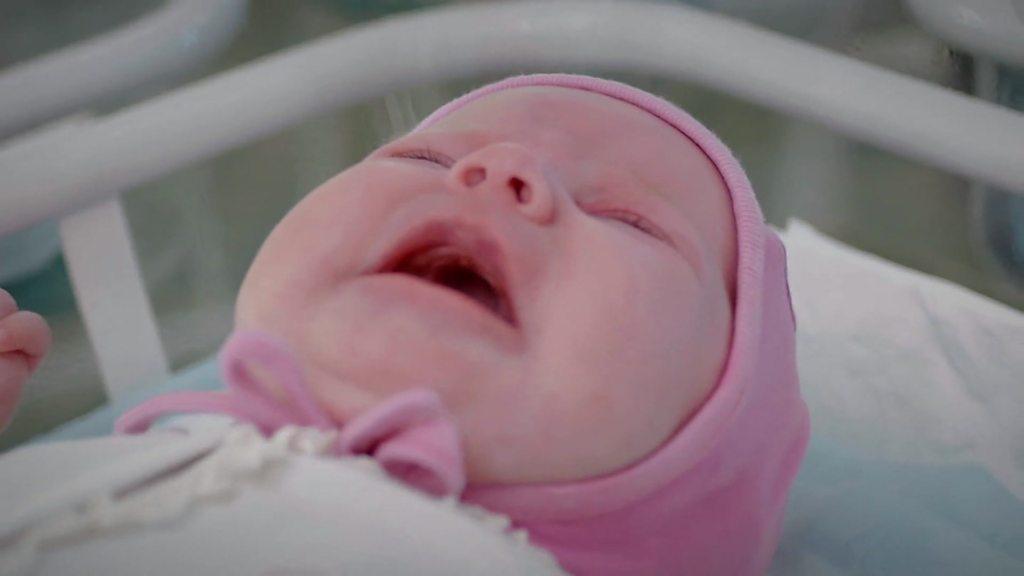
- Published26 April 2019
